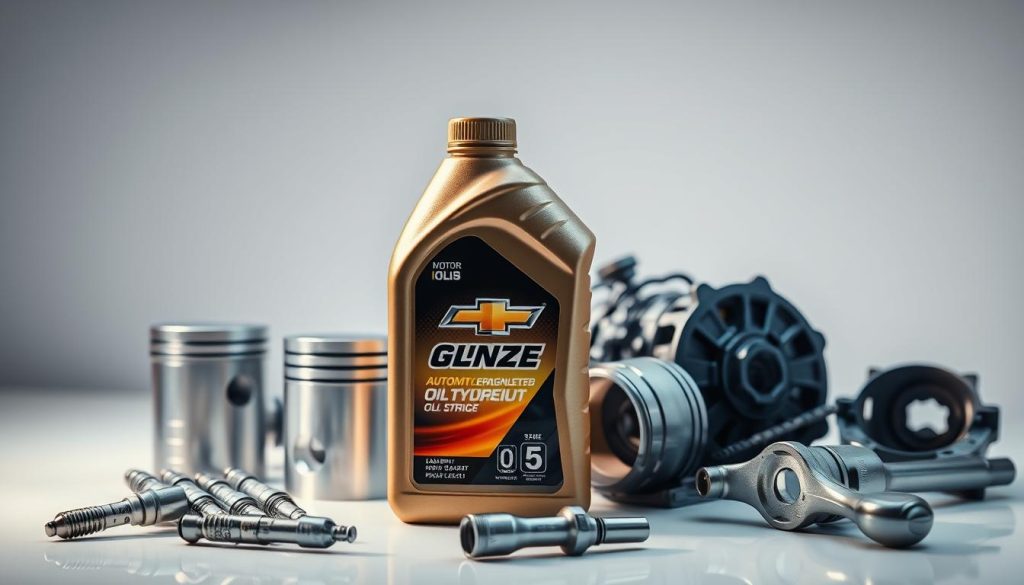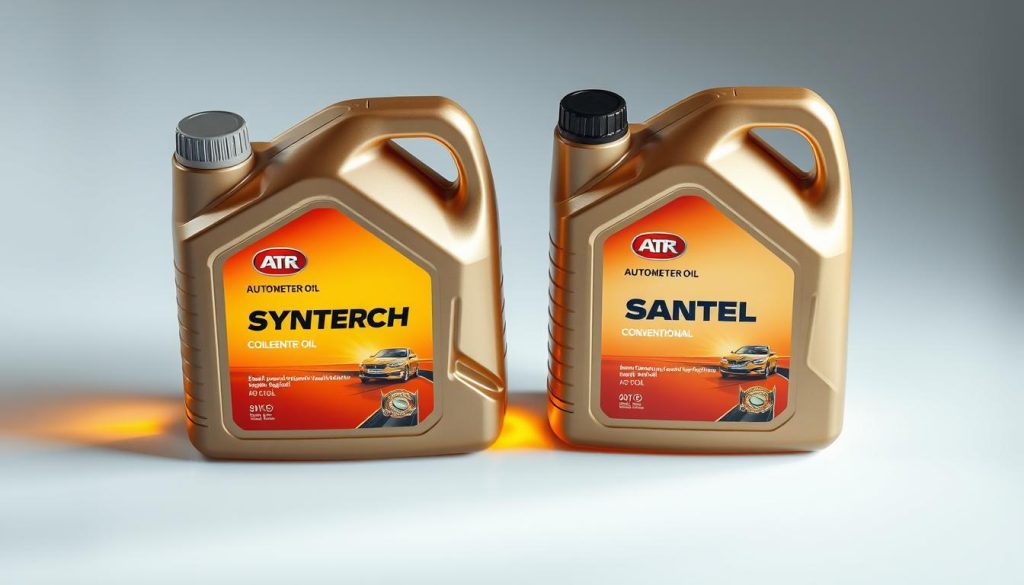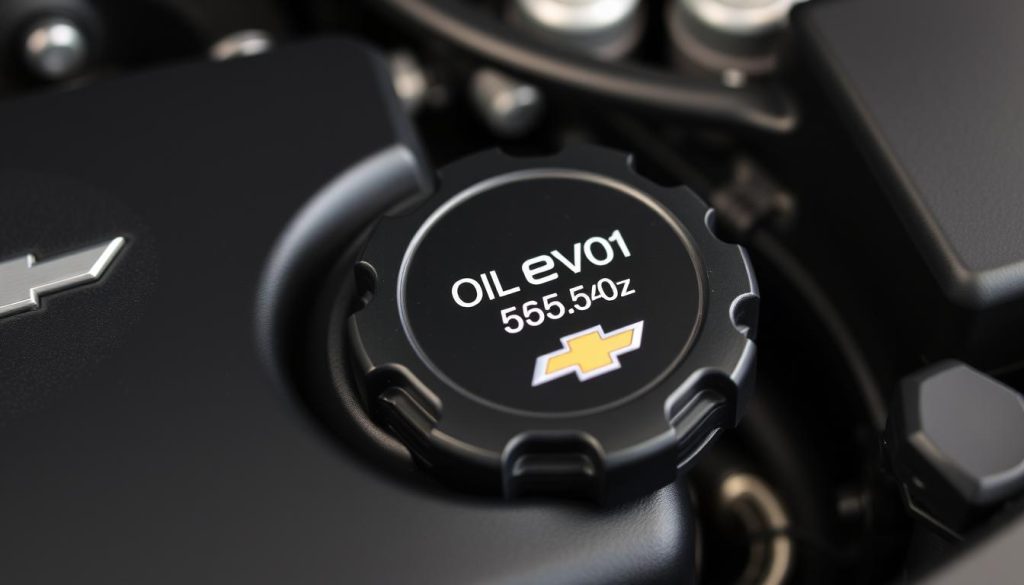Chevy Cruze Oil Type: What You Need to Know
Picking the correct chevy cruze oil type is key for your car’s performance and long life. Engine oil is very important for keeping your engine in good shape and your car running well. No matter if your Cruze is new or old, knowing the chevy cruze oil recommendation by OEM is crucial.
This guide will help you understand why choosing the right oil matters for your Chevy Cruze. Using the right engine oil is not just following rules. It helps your car run better in all situations. Keep reading to learn how to pick the best oil and keep your Chevy Cruze running great with proper engine maintenance.
Understanding Your Chevy Cruze’s Engine Specifications
Knowing the engine specifics of your Chevy Cruze is key to good care. Learning about your car’s engine helps you choose the right chevy cruze engine oil. Let’s explore why knowing these details matters and how they guide us in selecting the best oil.
The Importance of Engine Specifications
Understanding your engine’s specs is highly beneficial. This knowledge helps ensure your engine performs well and lasts a long time. You’ll get to know how well your engine operates and which chevy cruze engine oil is best for it.
How Engine Type Affects Oil Type
Each engine type needs a particular kind of oil. For example, turbocharged engines require synthetic oils due to higher temperatures, whereas conventional oils might suffice for naturally aspirated engines. The right oil improves performance, efficiency, and the lifespan of your engine. This underscores the importance of matching the chevy cruze engine oil with your engine’s needs.
Chevy Cruze Engine Variants
The Chevy Cruze has had different engines over the years. Below, you’ll find a quick overview of common engine setups:
| Model Year | Engine Type | Displacement | Recommended Oil |
|---|---|---|---|
| 2011 | 1.4L Turbo I4 | 1.4L | 5W-30 Synthetic |
| 2014 | 2.0L Turbo Diesel | 2.0L | 5W-30 Synthetic Diesel Oil |
| 2018 | 1.6L Turbo Diesel | 1.6L | 0W-20 Synthetic Diesel Oil |
| 2020 | 1.4L EcoTec | 1.4L | 5W-30 Synthetic |
Chevy Cruze Oil Type: Key Recommendations
For the best running of your Chevy Cruze, it’s vital to follow the engine oil recommendations. The right oil boosts efficiency and ensures everything runs smoothly. Here are the oils recommended for different models to help with your vehicle maintenance:

| Chevy Cruze Model | Recommended Oil Type | OEM Specifications |
|---|---|---|
| 2011-2015 | SAE 5W-30 | GM dexos1 |
| 2016-2019 | SAE 5W-30 | GM dexos1 Gen 2 |
Selecting the right oil for your Chevy Cruze is beneficial. It makes sure the oil’s thickness is perfect for your engine. This lessens engine wear and extends its life. It also keeps your warranty valid and improves fuel efficiency.
Remember, the oil for Chevy Cruze engines must meet specific standards. Always choose oil that meets or is better than the GM dexos1 standard. This keeps the engine in top shape and prevents problems from the wrong oil use.
By heeding these engine oil recommendations, you keep your Chevy Cruze working well. Do regular vehicle checks to boost your car’s performance and life even more.
Why Oil Viscosity Matters for the Chevy Cruze
Knowing the importance of chevy cruze oil viscosity is key for top engine performance. The right oil viscosity provides good lubrication, lessening wear on parts. This also guarantees the engine works efficiently.
Understanding Oil Viscosity Ratings
Oil viscosity ratings show how thick the oil is and how well it flows at different temps. These ratings, like 5W-30, tell us how the oil performs in cold and hot weather. The lower the “W” number, the better it is for cold starts. The number after shows how it holds up in heat.
Recommended Viscosity for Different Climates
When picking the right oil for your Chevy Cruze, think about the weather.
- In cold areas, thinner oils like 0W-20 or 5W-30 keep your car protected when starting.
- In hot places, a thicker oil, such as 10W-40, ensures your car performs well in the heat.
Getting the chevy cruze oil viscosity and oil viscosity ratings right for your area helps your car run smoothly. Choosing the correct oil boosts engine life and gas mileage.
Best Oil for Chevy Cruze: Synthetic vs. Conventional
Choosing the right oil for your Chevy Cruze is crucial. It affects the car’s performance and how long it lasts. Let’s explore why synthetic oil might be the better choice and look at the costs of each type. This will help you decide what’s best for your car.

Benefits of Synthetic Oil
Synthetic oil has many perks, especially for the newer Chevy Cruze models. Let’s dive into the benefits:
- Better Engine Protection: Synthetic oil shields your engine better, making it last longer.
- High-Temperature Stability: It stays stable at high temperatures, so it doesn’t break down easily.
- Improved Lubrication: Synthetic oils reduce friction because they lubricate the engine better.
- Exceptional Cold Weather Performance: It flows well in cold weather, easing cold starts and lessening engine wear.
- Reduced Deposits: There are fewer deposits on engine parts, keeping your engine cleaner and running more smoothly.
Cost Considerations
Synthetic oil is pricier than conventional oil. But, it’s worth considering the longer-term savings and benefits. Here’s a quick comparison:
| Aspect | Conventional Oil | Synthetic Oil |
|---|---|---|
| Initial Cost | Lower | Higher |
| Oil Change Frequency | More Frequent | Less Frequent |
| Engine Longevity | Moderate | Longer |
| Overall Value | Cost-effective short-term | Cost-effective long-term |
Even though synthetic oil for your Chevy Cruze costs more at first, the benefits it offers are worth it. It improves engine performance and needs less frequent changes. When choosing your oil, weigh the initial cost against the lasting advantages to find the best option for your car.
How Often Should You Change the Oil in a Chevy Cruze?
Knowing when to change the oil in your Chevy Cruze is key for keeping it running smoothly. It’s recommended to change the oil every 7,500 to 10,000 miles if you drive normally. This keeps the oil fresh to lubricate the engine and avoid damage.

But, your driving habits might mean you need to change the oil more often. If you take lots of short trips, drive in heavy traffic, or face harsh weather, you’ll need to change it sooner. By keeping an eye on how and where you drive, you can figure out the best times for oil changes for your car.
To better visualize the recommended oil change intervals based on various conditions, consider the following table:
| Driving Condition | Oil Change Interval (Miles) |
|---|---|
| Normal Driving | 7,500 – 10,000 |
| Frequent Short Trips | 5,000 – 7,500 |
| Extreme Weather | 3,000 – 5,000 |
Keeping up with regular oil changes is crucial for your car’s health and performance. By following the service schedules, your Chevy Cruze will stay reliable and efficient. This helps prevent engine problems in the future.
Chevy Cruze Oil Capacity: What You Should Know
It’s important to know your chevy cruze oil capacity. This helps keep the engine running well for a long time. You’ll find out how much oil your car needs by its model year. Plus, there’s a guide on checking oil levels here.
Capacity by Model Year
For top-notch maintenance, knowing your Chevy Cruze’s model year specifications for oil is key. Here’s a table with the oil capacity for different model years:
| Model Year | Oil Capacity (Quarts) |
|---|---|
| 2011-2015 | 4.2 |
| 2016-2019 | 4.5 |
| 2020-2022 | 4.8 |
How to Check Your Oil Level
Make sure to check your oil with these steps:
- Park your car on a level surface and turn off the engine.
- Open the hood and find the oil dipstick.
- Remove the dipstick, clean it, and put it back in completely.
- Take it out again to see the oil level. It should be between “Min” and “Max”.
- If it’s low, add the right oil and check again.
Keeping the right chevy cruze oil capacity is vital for your car’s performance and long life. Always check oil levels and follow model year specifications. Doing this ensures your car works well.

Choosing the Right Oil Filter for Your Chevy Cruze
Finding the best chevy cruze oil filter is key to keeping your engine healthy and making your car last longer. The market offers many choices. So, knowing the difference between OEM vs aftermarket components and how to replace a filter correctly is crucial.
OEM vs. Aftermarket Filters
When picking Oil Filters, you have two main options: Original Equipment Manufacturer (OEM) filters and aftermarket filters. OEM filters are made by Chevy or its approved suppliers. They fit perfectly and work great, keeping up with the car’s original specs. On the other hand, aftermarket filters come in a wide selection, often cheaper. Yet, their quality and fit might not always match up.
| Feature | OEM Filters | Aftermarket Filters |
|---|---|---|
| Compatibility | Guaranteed | Variable |
| Quality | High and consistent | Varies widely |
| Price | Higher | Can be more affordable |
| Warranty | Often included | Not always included |
How to Replace the Oil Filter
Replacing a filter replacement in your Chevy Cruze is not too hard and can help you save on upkeep. Just follow these steps:
- Make sure the engine is cool and that the car is on a flat surface.
- Use a jack to lift the front of the car. Make sure it’s stable on jack stands for your safety.
- Find the oil filter and put an oil pan under it to catch any spills.
- Remove the old filter with an oil filter wrench. Let all the oil drain out.
- Put a little new oil on the new filter’s gasket. This helps it seal better.
- Hand-tighten the new filter until it’s secure but don’t overtighten it.
- Lower the car back down and fill the engine with the right oil.
- Start the car to check there are no leaks around the filter area.
By knowing the difference between OEM vs aftermarket components and how to change a filter replacement yourself, you can keep your Chevy Cruze running smoothly.
Signs It’s Time for an Oil Change
Staying on top of oil changes keeps your Chevy Cruze running smoothly. Knowing when it’s time for an oil change helps avoid expensive repairs and engine problems. Here are some clear oil change signs to look for.
Warning Lights on the Dashboard
Some dashboard warning lights tell you when you need an oil change. The oil pressure warning light, which looks like an oil can, is one of them. If you see this light, check your oil right away. Not paying attention to these dashboard warning lights could cause big engine troubles.
Changes in Engine Performance
Signs like worse gas mileage, slow acceleration, and odd engine noises mean it might be time for an oil change. These signs show that the oil isn’t working well anymore, causing more friction and damage inside the engine.
Dealing with these oil change signs and engine performance indicators quickly helps keep your Chevy Cruze in great shape. You’ll enjoy smooth and dependable drives.
Conclusion
Choosing the right oil for your Chevy Cruze is very important. It helps your car run better and last longer. Knowing your car’s engine and which oil it needs makes sure your engine runs well in any situation. We also talked about how synthetic oil is good and why changing your oil often is key to keeping your car running its best.
It’s crucial to change your oil on time and use the right oil filter for your Chevy Cruze. By following what the car maker and experts suggest, you can avoid problems and make your car last longer. Learning how much oil your car needs and knowing when to change the oil are important for taking good care of your Chevy Cruze.
To sum it up, picking the correct oil is super important. Following these care tips will keep your Chevy Cruze working great. If you keep up with regular checks and follow these tips, you will have a car that drives smoothly and reliably for years to come.







